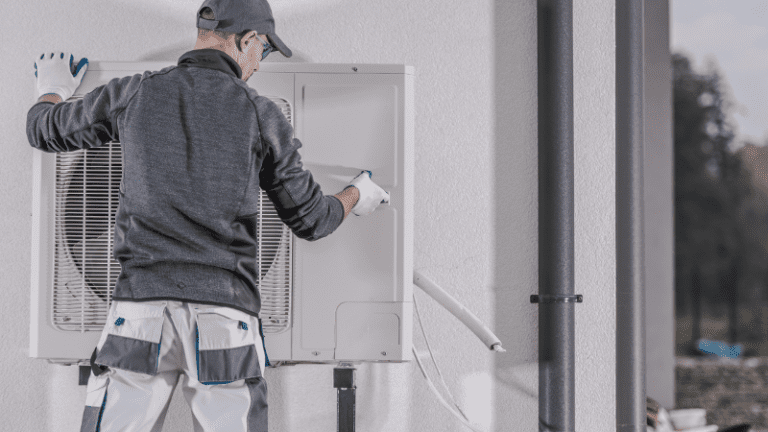No matter if they are part of a commercial HVAC system or a refrigeration system, all compressors need to contend with ambient heat in the environment. Waste heat can be a significant challenge – for example, in grocery stores.
Compressors are also more efficient in the temperature band for which they are designed. If the temperature outside is consistently higher than the compressor was meant for, it will work harder. That leaves it prone to loss of cooling efficiency, higher energy usage, and early failure.
Unfortunately, this is a problem many commercial compressors face right now.
With year after year of record-breaking heat and “once in a lifetime” weather events, it is important to take stock of how higher temperatures could impact your systems in the future. For those who are in a hot or humid south or southwest location, this becomes even more of an imperative event.
Here at Compressors Unlimited, we advocate proactive maintenance to keep your compressors working for as long as possible. That includes making sure you have the right compressor spare parts on hand to meet enhanced maintenance needs that might develop over the coming years.
It’s crucial to take all the actions you can to protect your systems from the heat.
Keeping Your Commercial HVAC and Refrigeration Systems Working in High Heat
There are certain steps you can take right away to help your compressors cope more effectively:
1. Ensure Your System Is Fully Lubricated and Has Appropriate Refrigerant
Lubrication is the key for minimizing wear and tear and keeping components throughout your system in working condition longer. Be sure you are regularly checking on lubrication levels as part of your regular maintenance. Don’t let refrigerant levels run down until tenants in your building notice lukewarm air.
2. Reduce Demand with Smart Thermostats and Other Systems
There has never been a better time to upgrade to a smart thermostat for your commercial HVAC system. The most advanced smart thermostat systems available today will monitor occupancy levels in the different areas of your building and reduce usage where possible, leading to lower strain on your compressor.
3. Enhance Airflow Within Your Building
The better your airflow, the less your system has to work to meet its cooling or heating goals. Likewise, a building with good airflow tends to be perceived as more comfortable. Besides cleaning out or replacing air filters regularly, there are steps you can take beyond the confines of your system itself.
Work with colleagues to make sure appropriate insulation is installed in your building. Cracks and gaps in the outer envelope should be taken care of – even a simple warped window has an impact. Speaking of windows, double glazing and other window treatments can reduce a building’s heat loss.
4. Upgrade and Update Your Other Building Systems
All of the major building systems throughout your structure have an effect on how much heat you’ll be dealing with. Now is an ideal time to see if you can update or upgrade your roof. The roof is the biggest contributor to overall efficiency of your indoor heat cycle, the natural upward flow of hot air.
If you’re in a region known for plenty of sun, a more reflective roof can make a dramatic difference. A metal roof has the potential to reflect 50% or even more of the solar radiation that strikes it. With less heat absorbed, cooling becomes much easier and will use less electricity overall.
Electrical wiring is another area for prudent investment, especially with older construction. High heat translates directly into greater electrical demand for your cooling and refrigeration systems. You may meet current needs with no problem, but verify you are ready for a 10%, 20%, or 30% increase.
Planning for Emergencies or Retirement of Your Compressor Fleet
Under ordinary conditions, you can expect anywhere from eight to ten years of reliable service from a modern commercial compressor that receives thorough maintenance. Having the right components on hand helps ensure that your compressors can be repaired rather than failing outright. But it is also a wise idea to plan ahead for sourcing replacement commercial compressors.
At a time when everyone is trying to avoid costly delays caused by global supply chain issues, there’s a sure way to make your life easier: Use remanufactured commercial compressors. A remanufactured unit cuts hundreds or even thousands of miles off your supply chain and trims sourcing from months to days. Your remanufacturing team can also advise you on what spare parts you should stock to avoid system failure.
With a fully remanufactured commercial compressor, you are getting equipment that has been totally repaired, cleaned, and tested. It is guaranteed to deliver the performance and environmental standards you need, all at a fraction of the cost – and that may be critical in a future of heat-driven replacements.












